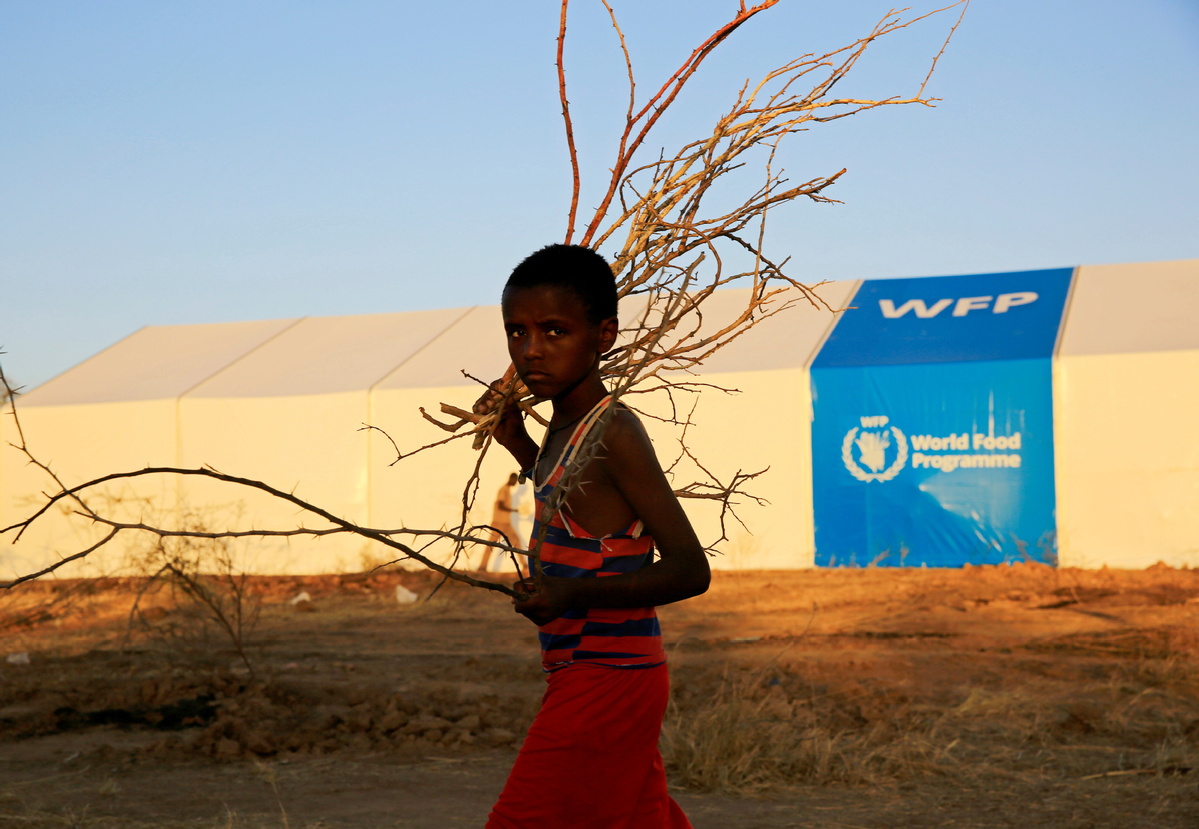Food-insecure population in Sudan to hit 18 million
By Edith Mutethya in Nairobi, Kenya | chinadaily.com.cn | Updated: 2022-05-25 21:51

The number of acutely food insecure people across Sudan is expected to increase from 9.8 million last year to 18 million by September, according to the World Food Programme and the Food and Agriculture Organization.
The United Nation agencies attributed food insecurity to below-average estimates for the 2021-2022 harvest due to erratic seasonal rains, floods, pests, diseases and input shortages.
According to the United Nations Office for the Coordination of Humanitarian Affairs, dry spells and crop failure in 115 localities in 14 states across Sudan have affected 5.6 million people.
Additionally, high prices of agricultural inputs have affected the harvest, which is down by around 35 percent compared to last year.
The May food prices monitoring and analysis bulletin produced by FAO indicated prices of locally grown sorghum and millet continued to soar across Sudan.
Prices for millet rose by 3 to 27 percent while those of sorghum surged by 4 to 35 percent.
Prices of wheat also increased by 12 percent in Dongola market, three times the price from a year earlier.
FAO attributed the surging prices to a below-average local harvest due to shortages of improved seeds and fertilizers, increasing electricity rates that affect pump irrigation and increased demand due to soaring prices of imported wheat.
Heightened political instability and intercommunal clashes since late October exerted further upward pressure on prices.
While briefing the UN Security Council on Tuesday, Volker Perthes, the special representative of the secretary-general for Sudan, said the overall situation in the country remains precarious, with the country's political, social and economic stability at stake.
He warned lack of progress on the political track will result in humanitarian disaster in the East African country.
"Time is short for the Sudanese to reach a political solution to forge a way out of this crisis," he said.
Perthes said the effects of political instability, economic crisis, poor harvests and global supply shocks are having a "disastrous" impact on the country.
"If a solution to the current impasse is not found, the consequences will be felt beyond Sudan's borders for a generation," he said.
Martin Kimani, a Kenyan representative who also spoke for Gabon and Ghana, urged the international donor community and international financial institutions to reconsider the temporary suspension of aid to Sudan and continue their support programs and projects to sustain Sudanese lives and livelihoods.
Al-Harith Idriss, who represented Sudan, said efforts are ongoing to complete the transition and form a civilian government through democratic elections.
"The government is doing everything it can to find a lasting solution, including by establishing arms controls, supporting victims and providing humanitarian assistance," he said.
























